The Meaning of True Anarchism - Part 2: Into The Future. Moving Towards Sustainable Social System.
I have been supporter of anarchism for quite a long time, but for many years I couldn’t figure out how to sustainably reconcile anarchism with the notions of property and monetary system.
That was until few years ago I read a book called “The Best That Money Can’t Buy” by J. Fresco. After I finished reading it, suddenly everything started making sense to me - monetary systems are the problem.
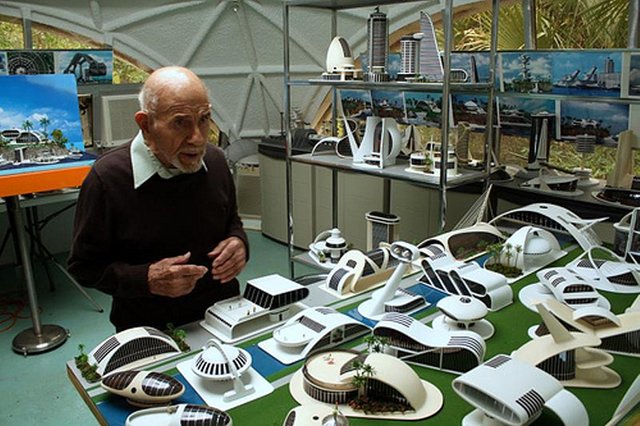
[Jacque Fresco in his design studio in Venus, Florida]
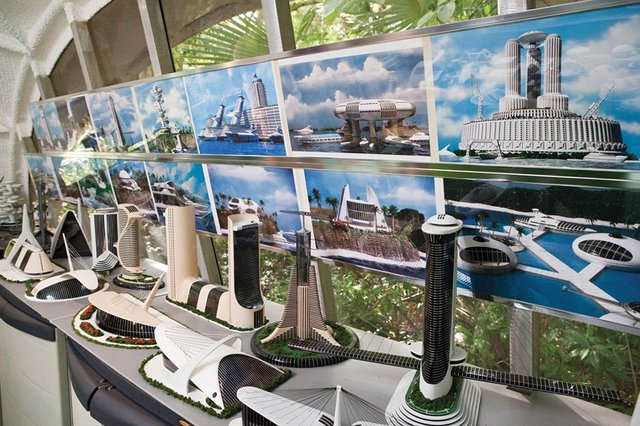
[The Venus Project designs and scale models]
I realized I got it all wrong and that my anarchist conceptualizations were outdated. I had to start thinking out of the box. I had to start looking into the future, instead of trying to find solutions within obsolete concepts of monetary systems. Anarcho-communism, anarcho-capitalism, anarcho-syndicalism – they all revolve around outdated notions of money and outdated knowledge.
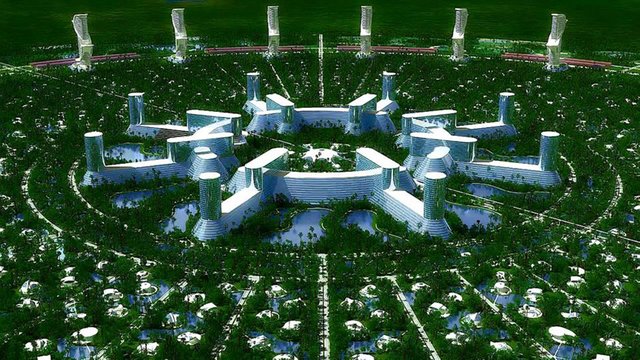
[Source: The Venus Project - RBE circular city]
Jacque Fresco proposes a vision of completely new social system. Social system which has never been tried or offered before. It is neither a monetary system, nor is it political. This system completely rejects notions of money and politics.
This system is called Resource-Based Economy (or like some others called it Natural Law-Based Economy). In short, RBE means application of scientific method for social and environmental concern with intelligent management of earth’s resources. Basically, this system prioritises the well being of society and environment over anything else.
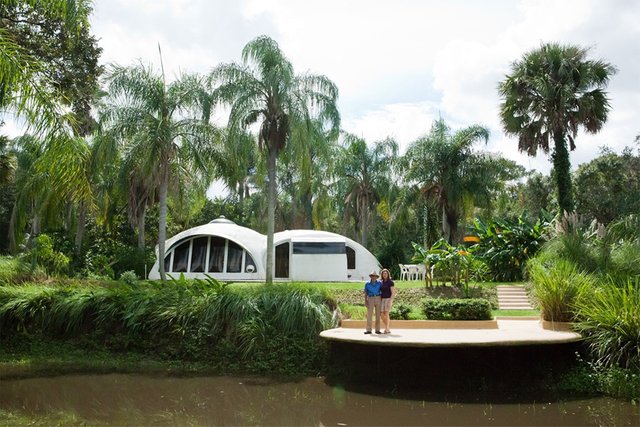
[ Jacque Fresco and Roxanne Meadows in front of The Venus Project, Florida]
Jacque Fresco and Roxanne Meadows started The Venus Project (in Venus, Florida) and spent decades improving concept of RBE by thoroughly and deeply researching and applying many fields of science and engineering: science of human behaviour, cybernetics, automation, social engineering, industrial design, genetics, structural engineering, psychology, architectural design, and many others. They have created designs of fully sustainable RBE cities, where all means of manual labour are replaced by automation, with whole infrastructure managed by computers. Every single part within design of the city (factories, recycling facilities, transportation, housing, roads, vertical farms, recreation etc.) serves a purpose - there are no resource-wasteful, pointless designs. People perform role of supervisors.

[Source: The Venus Project - sea cities]
All the system is an emerging system. It means that it is constantly evolving and changing. When new technology comes up, the system updates itself (what you start implementing within the city design right now might be already obsolete when you finish the construction). The whole city design is constructed that way that it can be easily modified and replaced with next the generation of components.

[Source: The Venus Project - sea cities]
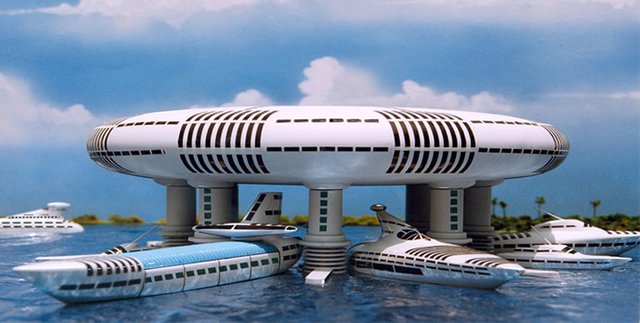
[Source: The Venus Project - sea city scale models]
This is truly anarchist social system.
There is no private property. When someone moves into a new house they have an option to choose their own design. When someone needs a transport, they pick up a car from nearby distribution parking (when car is abandoned it drives itself back to appropriate distribution parking). When a person needs to travel to another city, they use superfast maglev trains. If you need some household item or tool, you just go and pick it up from distribution centre. When your items get broken, you bring them back and replace them in distribution centre.
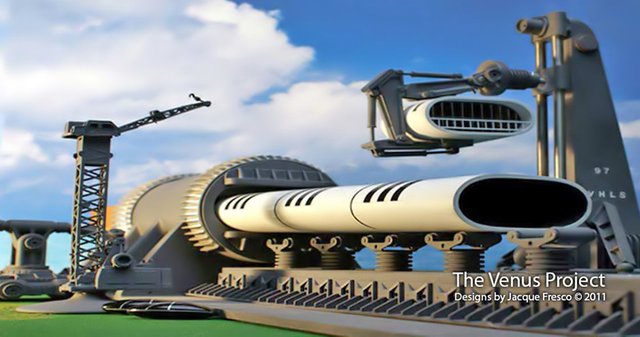
[Source: The Venus Project - construction of the city components, scale models.]
There is no hierarchy and leaders. Everyone is an equal part of the system. It is system which rejects competition and rewards cooperation. People work together in cooperation as problem solvers. Because, system of monetary employment does not exist, everyone is a volunteer who contributes to society accordingly to their own personal capabilities and talents: engineers, scientists etc. The true incentive and motivation is having rewarding ability to contribute your work to betterment of society and environment, which everyone shares.
Also, because there are no jobs, people have plenty of time to release their ingenuity and focus on self expression through art, physical activities and different hobbies.
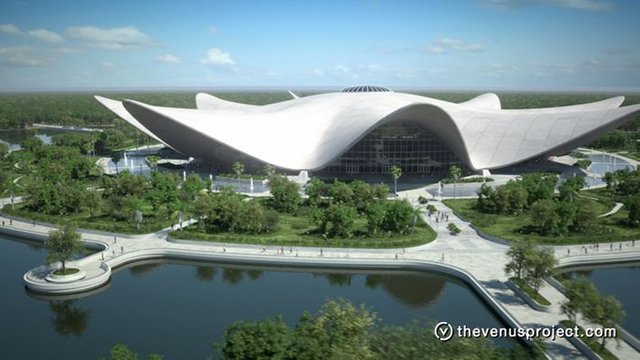
[Source: The Venus Project - RBE city central hub]
Of course, we cannot implement such system right away, although we have all necessary resources and technological means and know how. To achieve Resource-Based Economy, we need transformation. I think that cryptocurrencies are valuable bridging technology between a monetary system and RBE - truly anarchist, money-free social system.
-logic
If you want to know more, please read the book “The Best That Money Can’t Buy” by Jacque Fresco
or watch one of recent The Venus Project free YT documentaries called “The Choice is Ours” (subtitles in over 20 languages):
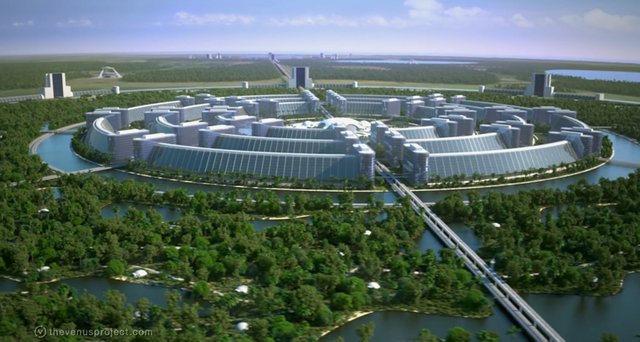
I like J. Fresco, though I don't completely agree with his conclusions. Years ago I went through a Peter Joseph phase which is what ultimately set me on the path to anarchism and cryptocurrency. Unfortunately his proposed solutions never adequately addressed the price discovery problem inherent in his futuristic RBE model, in my opinion. Maybe he's revised them since then, but I much prefer Dan Larimer's work. However, I like your post. Upvote.
I'm glad you like it. Thanks for upvote.
Peter Joseph organization and The Venus Project are separate projects ,although they both are proponents of RBE. Peter Joseph has nothing to do with TVP although he learnt about RBE from TVP. TVP distanced itself from P. Joseph few years ago.
"price discovery problem " - not sure what you mean by that. There is no such thing as price in RBE. There is no monetary value for any product in RBE. There is no trade neither.
Resources/products may be moved between the cities accordingly to the needs through cybernated, intellligent management.
That's the problem. How does the "cybernated" system function and how does it efficiently allocate resources. This seems like a central question which I never discovered an answer to.
There is a network of feedback sensors which give real time information from both the natural environment, as well as from within the city. Also, all cities would be providing each other witjh the necessry feedback. It is like cybernated global neural network (kind of like internet extended with environmental sensors). All information is gathered and processed by computers with help of AI and then resources are allocated intelligently and as most sustainable as possible, accordingly to the feedback from the environment. You have real time data about the quality of air, solar energy, wind power, amount of water and it's quality, population, weather changes, intensity of manufacturing, efficiency of recycling, quality of soil, speed of construction, amount of products, amount of natural resources, speed of agricultural growth, and so on.
It all works out automatically with no need for human intervention. People just supervise. Also, evey part within the city has it's backup system in case some part of the system malfunctions.
You are likely to find answers in FAQ. There are answers to most common questions, people have asked within years. There is an answer to your question too.
If you don't find it, then I would recommend reading the book. It's all explained there.
I like the idea but I can't quite get how nothing could have any sort of value. What about art? Like a painting or something. If two people want it than one of them would be willing to pay (with something the painter finds valuable, not necessarily money) a little more than the other person. Sure it would work to have everything automated that can be mass be produced (food, tools, houses, transportation, etc) but what about the rare items that can only be made once?
This system also provide social conditions which eradicate behaviour such as greed or material jealousy. Jealous and greed are behaviours conditioned by current social system. In RBE if someone creates beautiful art, then others would appreciate the beauty but they would not be jealous of it. Jealousy is direct outcome of competition and inequality. RBE is about equality and coooperation. RBE is about mutual, reciprocal altruism.
Besides scarcity of certain art can be eradicated by copying the art. In RBE society with advanced 3D printers, art would be easily copied. Also, in RBE there is no such thing as intellectual property. All ideas are shared and belong to everyone. In the end there is no single originator of any idea. Evey idea has a source in someone/ something else.